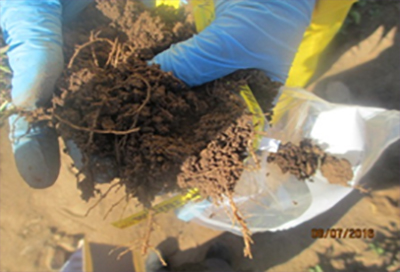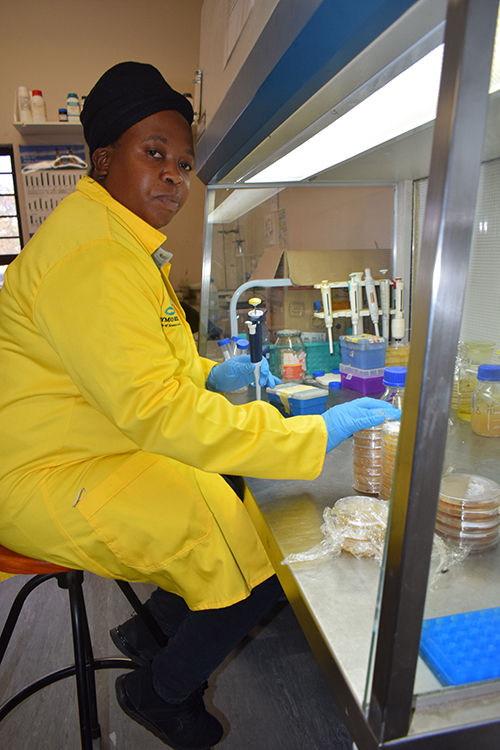Prompted by the high cost of chemicals fertilisers and their impact on the environment, a master’s student the North-West University’s (NWU’s) Mahikeng Campus, took on the challenge of searching for environmentally friendly options to replace or supplement chemical fertilisers.
Motlagomang Khantsi’s study titled “Determination and comparison of intraspecific variation in the bacterial strains resident around the root area of bambara nut”, was conducted in the Food Security and Safety research focus area at the NWU.
Motlagomang looked at soil microorganisms and identified plant growth-promoting rhizobacteria (PGPR), which serve as sources of nutrients for crops, promoting growth and development.
This was done through determining and exploiting rhizobacteria common in the area around the roots of the bambara nut. The bambara nut is a nutrient-dense, drought-resistant legume from West Africa, also known as the bambara groundnut, condo goober and earthpea.
Chemicals can reach surface water through runoff from treated plants and soil, therefore decreasing soil fertility over time. Moreover, industrial workers are at increased risk since they handle various toxic chemicals, raw materials and toxic solvents,” she explains.
Food security, says Motlagomang, is not just about the availability of food, but also about having consistent access to safe, healthy and nutritious food.
She identified isolates with PGPR traits that can be considered as an alternative to chemical fertilisers.
“These isolates are likely to be potential candidates for biofertilisers, biocontrol and biotechnological application of commercial value. A future study will look into commercial production of the plant growth-promoting rhizobacteria. This, along with other innovations, could prove to be an environmentally friendly strategy to ensure sustainable and cost-effective agriculture,” concludes Motlagomang.
*Part of Motlagomang’s study was conducted in collaboration with the University of Iasi in Romania and was supervised by Prof Olubukola Oluranti Babalola.

Plant growth-promoting rhizobacteria are commonly found in the area around the roots of the bambara nut.

Motlagomang Khantsi.
